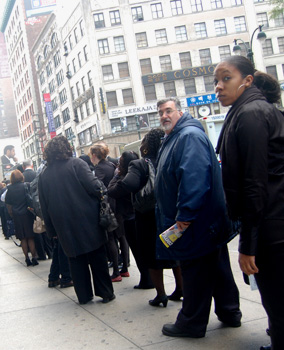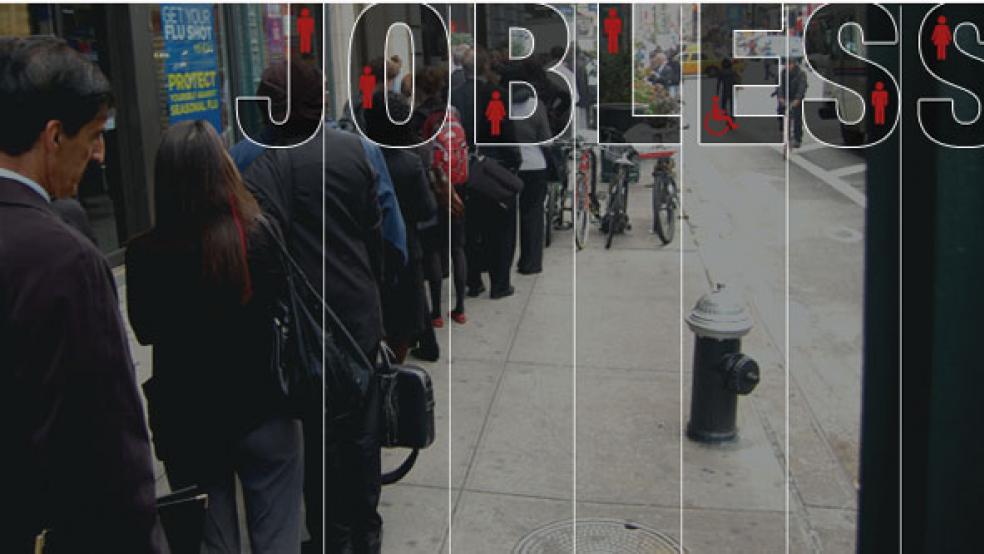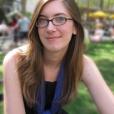On a crisp Thursday morning last week, a sea of jobseekers wrapped around the corner of 32nd Street and Broadway in New York City for a small, 17-company job fair at the Radisson Hotel. Passersby strolled by without a blink of an eye, as snaking job fair lines have become a common sight in cities around the country. With the unemployment rate still at 9.6 percent — and having topped 9.5 percent for 14 months, the longest stretch since the 1930s — most of those standing in line were used to the long lines and massive crowds.
As America turns to the elections, no population is more fed up with the government’s handling of the economy and the lack of job creation as the jobseekers themselves. In a September New York Times/CBS News poll, 60 percent of Americans said that the economy or jobs were the most important problems facing the country (as opposed to only 3 percent who said Afghanistan or the war).
Holding briefcases and resumes, the jobseekers mingled with others in line and discussed their gripes, frustrations and laments about the current economic situation, and a seemingly never-ending job search. Three women in line, all unemployed for over nine months, had met that morning and immediately bonded over unemployment frustrations.
Your resume never gets seen by anyone.”
One, Teresa Giligan, 49, dressed in a smart black blazer, worked as an internal auditor at a bank before being laid off. She has been on dozens of interviews, with no luck. “I hear, ‘you’re overqualified, we went with another candidate who came in cheaper,’” she said. A single mom with two kids, ages 10 and 13, she worries about what will happen when her unemployment benefits run out. “I want to get retrained for a position, but how do I get retrained and still maintain my home for my children and feed them and make sure they have medical and dental?”
Next to her, Meghan McDonough, 39, a former insurance broker and unemployed jobseeker for over a year, chimed in: “Unless you’ve gone through it, people do not understand. They say ‘Yeah, I understand, I understand,’ but they have no idea. No clue.”
 Stephanie Williams, 40, also standing nearby, worked as an administrative assistant, but hopes to find work in health care. She’s been unemployed for a year, and recently had to move back in with her parents.
Stephanie Williams, 40, also standing nearby, worked as an administrative assistant, but hopes to find work in health care. She’s been unemployed for a year, and recently had to move back in with her parents.
When asked how many jobs they’ve applied to, Giligan laughed. “Applied to? Don’t even go there.”
“Too many to count,” said Williams, shaking her head.
“Resumes go into this endless abyss,” said McDonough.
“I refer to it as the automated abyss,” said Giligan. “Your resume never gets seen by anyone.”
Most of those in line were middle age, a diverse mix of gender and race. Many in attendance had been unemployed for over a year, and with an additional 95,000 jobs lost in September, prospects are not looking up. On average, there are currently 4.6 unemployed Americans competing for each job opening, compared to only 1.8 people per opening before the recession.
The only 20-somethings spotted were Claire Miller, 23, and Peter Engelbert, 25, two recent graduates working at coffee shops to get by. Engelbert is a musician looking for a job in the recording industry, and Miller is looking for work in nonprofit administration. “I was really hopeful when I moved here, but after two months was discouraged,” Miller said. “But at least I have work.” Englebert agreed: “As long as I’m in New York and able to support myself modestly, and I’m able to work on my own projects.”
because we dress professionally, hoping to find a job.”
Likely the oldest jobseeker present was 73-year-old Marion Glandorf, who has been looking for work since February. She has sent out over 300 resumes, and attended a rally in August to protest Washington’s failure to extend unemployment benefits past the 99-week cap, wearing a large sign on her chest saying “Available for Hire,” and passed out resumes.
At the Radisson Hotel fair, she entered the ballroom and cheerily introduced herself to everyone, including the staff standing at the entrance. Petite and nimble, with a bold red coat, white hair and a heavy Long Island accent, she wandered around to each booth, not bypassing any options. Searching for an executive administrative assistant position, she likely wouldn’t find many leads at the ARMY booth, but nonetheless, she stopped by and chatted with a recruiter, handing him her resume. Later she voiced her frustrations: “We’re not even a face to the government, we’re just a number on the unemployment check,” she said passionately. “We could be your neighbor — but you wouldn’t know because we dress professionally, hoping to find a job.”
Glandorf and others discussed what they believe is age discrimination on job interviews. “I call it gray-haired discrimination,” says Glandorf. Teresa Giligan said her bank started a college-recruiting firm — only to replace the older workers with the recent grads. “Loyalty means nothing anymore,” said McDonough.
After making the rounds in the orange-carpeted ballroom, many were disappointed with the Radisson Hotel job fair. “It was small,” said Karle Rogers, 40, who’s been unemployed for a year and recently received a nursing assistant certification. “I only talked to one person. The rest were looking for you to sell something. I don’t have any experience in that area.” The most popular booth, in fact, was one not offering any jobs at all: a nonprofit called Forty Plus, that offered jobseekers “peer support, job search strategies and expert workshops on resume writing, interviewing, networking and more.” A line formed simply to pick up a brochure.
Many stood around idly waiting for Time Warner Cable, who was schedule to come at 10 A.M., but didn’t arrive until 1 P.M. “It’s a struggle,” said Glandorf. “I’m going to be applying for food stamps in November when my unemployment runs out. It’s bad, but I’m still optimistic, and I’m going to continue to be that way.”




